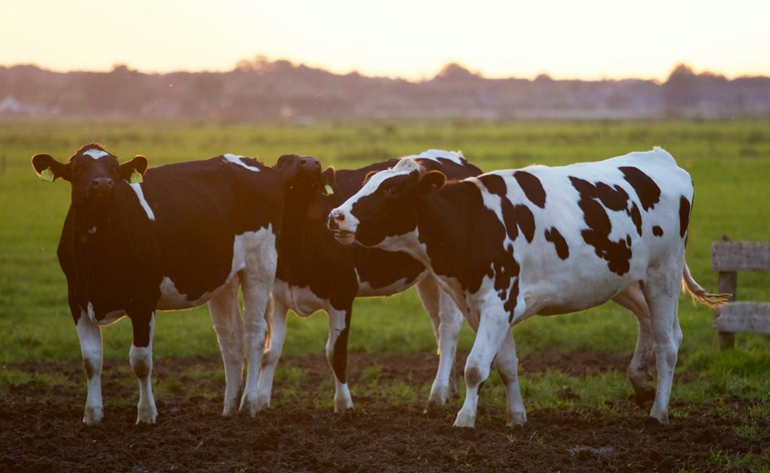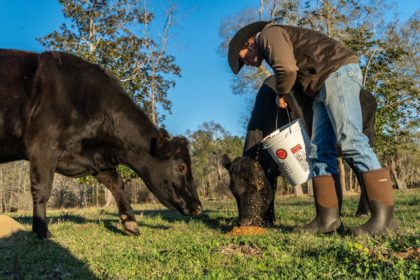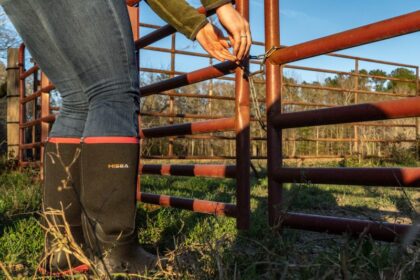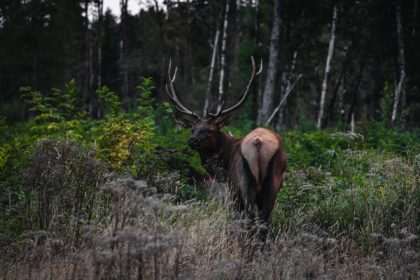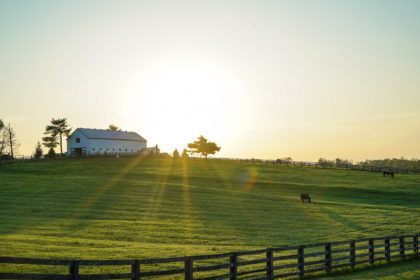Maintaining good sanitation on a dairy farm is difficult. These difficulties may be overcome by various outfits designed to keep your dairy farm clean and safe. But does the apparel we wear protect us, or may it put us at more risk as we work?
Most dairy farm owners now provide their staff with uniforms or clothing allowance. Dairy products must be produced safely to protect the health of animals, employees, and customers.
As a dairy producer, there are a few factors to consider while choosing your own or your staff’s clothing.
- Headwear: Let’s begin from the very top. A lot of work on current dairy farms is done inside, and wearing stocking caps will most likely be the preferred headwear as they provide some weather protection. Consider wearing bright fluorescent yellow, orange, or green stocking caps or hats to help staff be more visible for safety purposes.
- Protective glasses: Eye protection is particularly crucial, and all staff should be forced to wear safety goggles or glasses. Employees routinely operate with hazardous substances or things that have the potential to “propel” and end up in the eye. Furthermore, feed particles and dirt might be blasted into the eyes. In this situation, choosing eye protection is essential.
- Dressing: On the dairy farm, it’s essential to wear layers of clothing. Producers and employees are frequently exposed to a variety of dangers while working. Clothing should be somewhat form-fitting and free of holes or threads that might get tangled up in machinery. When choosing cloth, durability, and breathability are crucial factors. Although we prefer fitted, non-baggy clothing, it must allow the wearer to sit, stretch, squat, and bend.
- Footwear: Footwear is extremely important on dairy farms. We suggest wearing Hisea AquaX Men’s Rain Rubber Boots with a non-skid outsole are wonderful selections since they protect the foot from excess wetness and are readily cleaned. Hisea Men’s Moc Toe leather boots with sturdy soles are also advised to protect our feet when an animal steps on them or when working with heavy machinery. Socks that drain moisture away from the foot are also vital; otherwise, employees may get athlete’s foot due to working in high-moisture situations.
- Gloves: We rarely think about our hands, yet staff in the milking parlor of a dairy should wear rubber gloves. Gloves that shield hands from the outdoors are acceptable if the personnel is not working with chemicals. Fit, durability, protection from the hot or cold environment, and affordability are all factors to consider.
- Other Protective Measures: Dust masks should also be made available to employees as protection against the grime, dust, and mold that might be found in the workplace. Other dairy protective measures are chaps, bib-and-braces, milking sleeves, aprons, and complete body suits.
Why HISEA Boots?
- Comfort: A dairy farmer has a lot to do, from cleaning their quarters to performing all the milking and feeding. You must buy Hisea men’s dairy boots that will allow you to labor while being comfortable and safe from slips and other hazards on your farm.
- Durability: Aside from comfort, you need robust and long-lasting shoes. The HISEA Leather Protective Boot is an example of a shoe designed to resist even the most inclement weather. As a dairy farmer, you must wear these shoes that are both robust and long-lasting.
- Shoe Grip: It is natural for a dairy farm to be quite soggy and slick. As a dairy farmer, you should invest in footwear like Hisea, which has the finest grip system so you can operate on any terrain without worrying about falling.
Want to know more about our farming boots? Check this post.
Final Thoughts
Dairy farming can be a very demanding profession with exceptionally long days. Thus, HISEA shoes might trivialize your efforts. There are many shoes to choose from in our online store, but some shoes stand out above the rest. Do not let bad quality footwear hinder you from being the best dairy farmer.
Happy farming!

